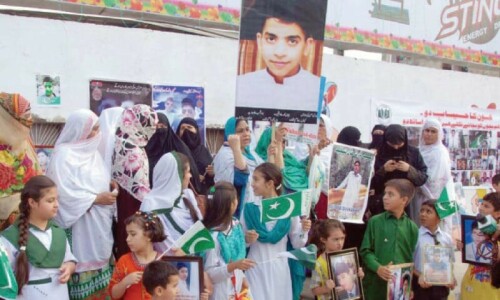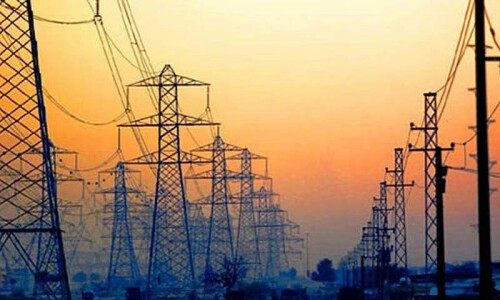WITH by-elections looming in Punjab, the question that necessarily arises is of choice. Independents and contestants from other parties aside, the tussle will obviously be between the two main contenders, PML-N and PTI.
The issue is, however, a little more complex. Voters will be faced this time round not with a conventional political choice, as such, but rather, in view of the grave economic and political crisis enveloping the country, something like a historical imperative.
Forethought will be called for, with decisions being driven not by partisanship or short-term political gain but the larger interest and the future of the country. Given the present polarities and the charged political environment, however, that may be too much to expect.
Read: Punjab by-polls promise to be a tense day for politics, in more than one ways
Even so, it must be realised that chances cannot be taken where what we seem to be witnessing is a state somewhat precariously poised as it struggles to reinvent itself. This may be a time of possibility but it is also one of hazard since errors of judgement, on the part of the electorate, can easily result in havoc.
The issue is economic but it is also social and cultural.
It is certainly not a time — with inflation and loadshedding at a record high — when power games are called for. Also, nothing would be more delusional than for the man on the street to imagine that there is a glorious political alternative out there with ready solutions.
Though our political avant-garde likes to think in terms of game changers, change of a radical kind at this point in time, when the chips are down, would not be short of disastrous. Also, if the PDM suffered the rule of the PTI for almost four years, it is only right that — conspiracy theories aside — the PTI should likewise sit it out for a while.
Democracy does not, as the PTI chairman seems to believe, allow for empowerment in perpetuity. Power is not — and cannot be — owned. It is a given of democracy that power is conferred by — and, after an allotted period, returned to — the people and that encores are not always ready at hand.
Interestingly, the PTI chairman likes to think of himself as, in oracular fashion, speaking truth to power. But the facts have their own truth to tell. The former cricket star is — manifestly — a man with an agenda. He is as, if not more, fixated on power than those currently at the helm.
It does not do a leader of his standing credit, however, to spout dogma to the masses in his own cause quite as he does at pre-election rallies. His personal vendetta against the coalition government is no more than just that. What will matter during the coming elections is what he delivered — or failed to — during his stint as prime minister of the country.
The government too is in no position to let up on its efforts on the economic front or congratulate itself on being out of the woods. That is not the case. Also, it must bear in mind that it comes with questionable historical baggage and that probity should be seen to matter.
That will be hard to establish if camouflage is resorted to in the guise of a kind of voodoo of economics attended by a principle of shady reciprocity at play between politicians and our industrial and agricultural elite.
It is possible that there may be cosmetic changes for the better with or without a government of consensus being in place. The fact, however, is that the future of the country will continue to look bleak in the absence of appropriate reorientation.
It is not enough to sort out a mess left by a previous government. Important questions need to be asked about where precisely as a society we are going. As a result of an indecent haste in trying to ‘make it’, we have become brutalised as well as criminalised over the last few decades.
Read: Measuring nationhood
The issue is clearly economic but it is also social and cultural. We are passing through a phase where subsistence is self-evidently of the essence and other concerns will inevitably seem of secondary importance.
It is understood that material well-being is the chief desideratum of a progressive modern society. But it is also important that material aspirations are equally balanced with human development.
Commentators rightly speak of the need for educational reform in the country. It is to be regretted, however, that they seem, on the whole, to be speaking in a vacuum where education has almost ceased to be a bonum in itself or to be relevant other than as a pure means to an end — or, in fact, to matter at all.
The issue is fundamental and deserves due attention and redress. Governments do not seem to be aware of this or to care, preoccupied as they have traditionally been not with producing a national meaning or nationhood but merely a culture of avarice and power — a dead end. We surely owe ourselves more on the eve of the country’s 75th anniversary.
The writer is the founder chairman of Dialogue: Pakistan, a local think tank.
Published in Dawn, July 15th, 2022













































